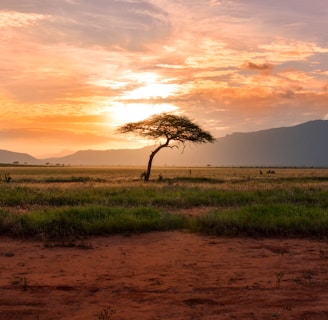Did You Know This About Africa?
12/8/20241 min read


The Linguistic Richness of Africa
Africa is an extraordinary continent that boasts an astounding linguistic diversity, with over 2,000 languages spoken across its various regions. This staggering number makes Africa home to the highest concentration of languages in the world. From the bustling streets of Lagos to the serene landscapes of the Sahara, each language encapsulates a unique culture, history, and way of life. Understanding Africa's linguistics is essential for grasping the continent's rich cultural tapestry.
Cultural Reflections in Languages
Countries like Nigeria exemplify this linguistic richness, featuring more than 500 distinct languages. Each of these languages is not merely a method of communication but a vessel for cultural identity and historical narratives. For instance, the Yoruba language holds vital cultural expressions that reflect the traditions and values of the Yoruba people. This is evident in their folklore, proverbs, and rituals, which are often conveyed through language. Similarly, languages such as Hausa and Igbo serve as significant markers of identity and community for millions of speakers.
The Importance of Language Preservation
As the world becomes increasingly interconnected, the preservation of these languages is paramount to safeguarding Africa’s cultural heritage. Many languages are at risk of fading away due to globalization and urbanization, which can lead to the dominance of a few major languages. Efforts to document and revitalize endangered languages are vital not only to maintain cultural diversity but also to provide future generations with a sense of belonging and identity. Educating communities about the importance of their native languages can empower them to take pride in their heritage while also bridging connections with others from different backgrounds.
In conclusion, the linguistic diversity of Africa serves as an invaluable asset that reflects its myriad cultures and histories. Celebrating and preserving this diversity is crucial for maintaining the continent’s unique heritage. Acknowledging the significance of each language can help foster mutual respect and understanding among people from diverse backgrounds, reinforcing the idea that language is more than just words; it is a profound part of what makes us human.